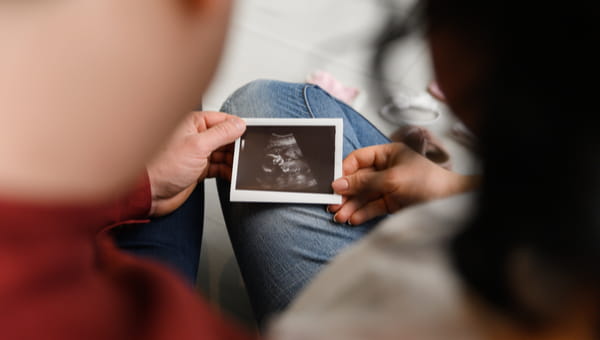One of the greatest fears of expecting mothers, especially early in pregnancy, is a miscarriage. The sudden loss of a pregnancy is devastating, but dwelling on the possibility isn’t good for you or your baby. The good news is that about two-thirds of early pregnancy losses come before the mother even knew she was pregnant, and every day that goes by makes it more and more likely that your little one will arrive safely. Let’s look at how the likelihood of early pregnancy loss goes down as the weeks go by.
The first six weeks
Guess what—you’re already past the highest-risk time of your pregnancy. During the first six weeks, as many as 75 percent of conceptions end in miscarriage—though oftentimes the mother doesn’t realize she was pregnant. A miscarriage at this early stage is usually because the embryo had a genetic issue that wouldn’t have allowed it to live outside the womb even if the baby had been carried to term.
Week seven
Have you heard your baby’s heartbeat yet? Here at week seven, there’s a good chance that you and your doctor can detect that little heart beating. And, once you hear it, the chances of losing the pregnancy drop dramatically—down to just 5 percent.
Weeks eight to 12
During the remainder of your second trimester, the chance of miscarriage drops again—down to about 2 to 4 percent.
After the first trimester
The reason why many women choose to wait until the second trimester to announce their pregnancy is because the chance of losing the baby is very low—less than 1 percent.
Preventing early pregnancy loss
While a miscarriage—except in very rare circumstances—isn’t the mother’s fault, there are some things you can do to lower your risk:
- Don’t use drugs or alcohol during pregnancy.
- Don’t smoke or use other tobacco products.
- Don’t drink large amounts of caffeine (a couple of cups of coffee a day is fine).
- Take your prenatal vitamin and make sure it has plenty of folate.
- Call your doctor immediately if you notice any vaginal bleeding.
- Stay away from toxic chemicals and other workplace hazards.
Learn more about emotional support resources for pregnancy loss.




